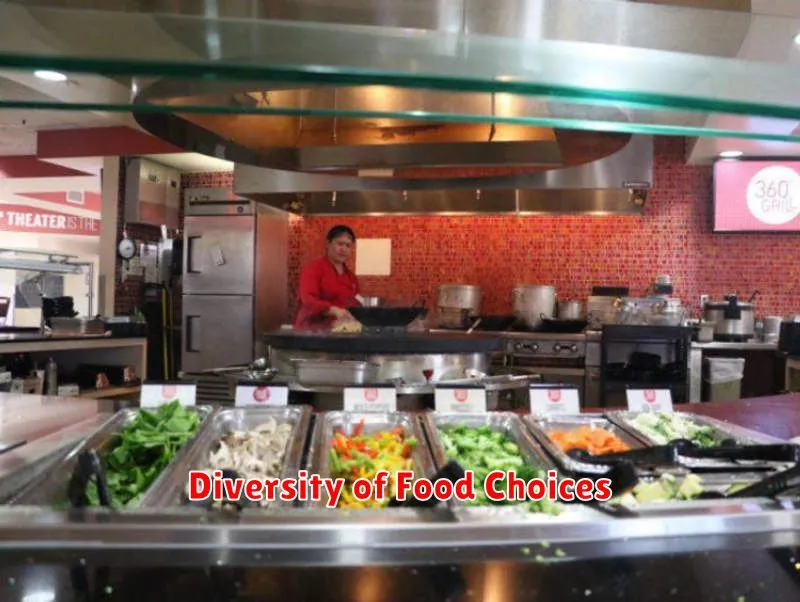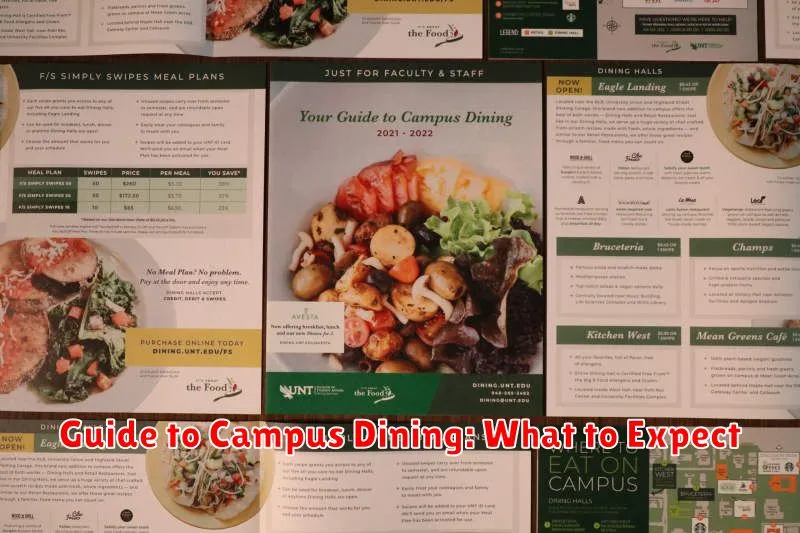Navigating the world of campus dining can be a daunting task for incoming college students. This comprehensive guide aims to provide a detailed overview of what to expect from campus dining halls, meal plans, and other on-campus dining options. From understanding meal plan options and dining hall hours to navigating dietary restrictions and exploring alternative dining venues, this guide will equip you with the essential knowledge to make informed decisions about your campus dining experience.
Whether you’re concerned about food quality, variety of options, or simply finding the best places to eat on campus, this guide addresses common questions and provides practical tips. Learn how to maximize your meal plan, explore on-campus restaurants and cafes, and discover healthy eating options amidst the hustle and bustle of college life. With this campus dining guide, you’ll be well-prepared to savor the culinary landscape of your new academic home.
Meal Plan Types and Costs
Most universities offer a variety of meal plan options to cater to different student needs and budgets. Understanding these options is crucial for managing your expenses and ensuring you have adequate access to food.
Meal plans typically fall into a few categories. Unlimited access plans often provide unlimited swipes at dining halls throughout the week. These are convenient but can be the most expensive option. Block plans offer a set number of meals per week or semester, providing more flexibility and potentially lower costs for students who prefer to cook some meals themselves. Declining balance plans work like a prepaid debit card, where funds are loaded onto a student ID and deducted with each purchase. This offers the most control over spending but requires careful budgeting.
The cost of meal plans varies significantly depending on the institution, the type of plan, and the included options. Unlimited plans can range from $X,XXX to $X,XXX per semester, while block and declining balance plans tend to start lower. Be sure to compare the different plans offered by your university to find the best fit for your dining habits and budget.
Diversity of Food Choices

Campus dining halls strive to cater to a wide range of dietary needs and preferences. Students can expect a variety of cuisines and dishes. This includes options for vegetarians, vegans, and those with specific allergies or intolerances such as gluten-free or dairy-free choices.
Meal options commonly include a salad bar, deli counter, made-to-order stations, and global cuisine sections. Nutritional information is typically available, allowing students to make informed choices.
While most dining halls offer core menu staples, daily or weekly specials provide additional variety. This ensures students have access to diverse culinary experiences throughout their time on campus.
Health-Conscious and Dietary Options
Most campuses recognize the importance of providing diverse dietary options to accommodate various needs and preferences. Students seeking healthier choices will typically find a range of options available.
Salad bars are commonly featured, offering fresh vegetables, fruits, and lean protein sources. Vegetarian and vegan options are also increasingly prevalent, with dedicated stations or menu items clearly labeled. Many dining halls now cater to specific dietary restrictions such as gluten-free and dairy-free.
Information regarding nutritional content, including calories, allergens, and ingredients, is often readily accessible. This information can be displayed on menu boards, near food stations, or available through the campus dining website or app.
Students with specific dietary needs due to medical conditions or allergies are encouraged to communicate directly with dining services. This ensures they receive appropriate guidance and support in navigating campus dining options safely and effectively.
Dining Hall Hours and Access

Understanding dining hall hours and access policies is crucial for a smooth dining experience. Hours of operation vary depending on the dining hall and the day of the week. Weekday hours are generally more extensive than weekend hours, with some dining halls offering late-night options.
Access to dining halls is typically granted through a student ID card or meal plan card. Be sure to have your card readily available when entering the dining hall. Guests may be able to dine with you depending on the specific dining hall’s policy; inquire at the dining hall entrance for guest access procedures.
Specific hours for each dining hall location can be found on the campus dining website or the campus mobile app.
<!–
| Dining Hall | Weekday Hours | Weekend Hours |
|---|---|---|
| Main Dining Hall | 7:00 AM – 9:00 PM | 9:00 AM – 7:00 PM |
| West End Dining Hall | 7:30 AM – 8:00 PM | 10:00 AM – 6:00 PM |
–>
Using Campus ID for Meals
Your campus ID card serves as your primary means of accessing meal plans and making purchases at on-campus dining locations. Present your ID at the cashier or card reader upon checkout.
Meal Plan Deductions: If you have a meal plan, the appropriate number of meals or dining dollars will be deducted from your account balance when you use your ID.
Declining Balance: You can also add declining balance funds, also known as Flex Dollars or Dining Dollars (depending on your institution), to your campus ID card. These funds can be used to supplement your meal plan or to purchase food if you don’t have a meal plan.
Lost or Stolen Cards: Immediately report a lost or stolen ID card to the appropriate campus office, often the Campus Card Services or Student Services office. This ensures no unauthorized charges are made to your account. A replacement fee may apply.

